'Show Must Go On': Smooth Start For Post Brexit Channel Freight
A steady flow of trucks in and out of France helped dispel fears of a chaotic start to Britain's first hours outside the EU customs union, with a high-tech smart border system smoothing crossings by tunnel and sea.
Lorries crossed into France and left the country for the United Kingdom at Calais through the Channel Tunnel while dozens more were carried on ferries, without any reports of major issues.
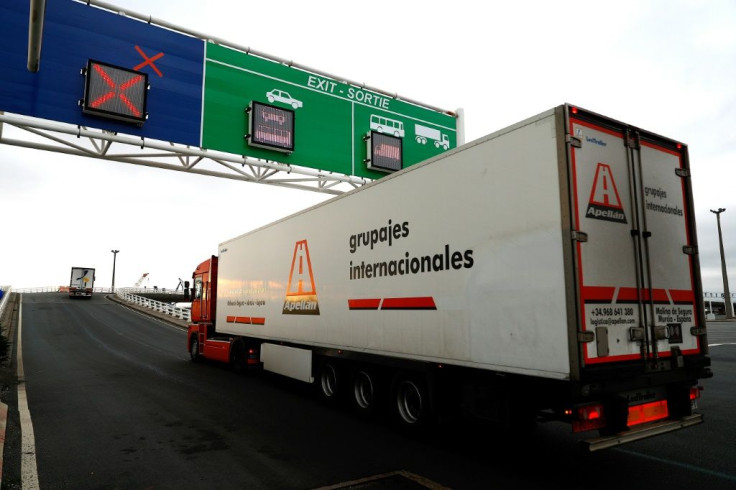
On the other side of the Channel at the English port of Dover, a steady stream of lorries arrived and departed with police on hand to ensure drivers could prove a negative result for Covid-19.
Almost 200 lorries passed through the tunnel after Britain formally left the EU customs union and single market at midnight in the final act of its exit from the European Union, operator Getlink said.
The first ferry to set sail for France under the new arrangements, The Pride of Kent of P&O Ferries, meanwhile docked in Calais mid-morning.
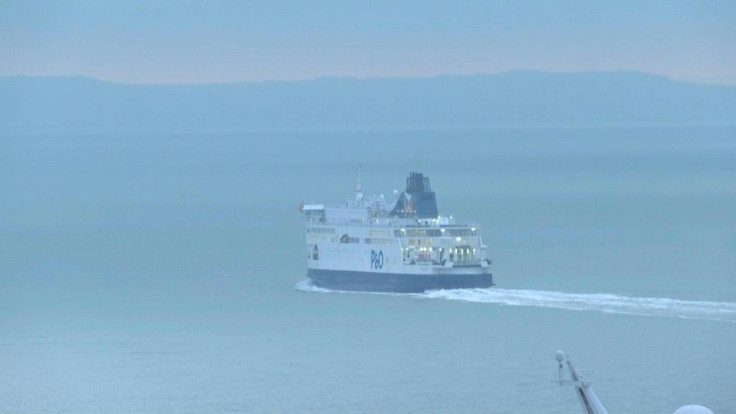
Jean Michel Thillier, the regional customs director in Calais, said the IT systems had worked perfectly after dry runs and 13 million euros ($15.6 million) of investment.
"Three years of work have borne fruit," he said, touting a "completely new computer system" and "major adjustments in terms of infrastructure".
A spokesperson for the Getlink operator which runs the Tunnel told AFP: "The traffic was strong enough for an exceptional and historic night, everything went well."
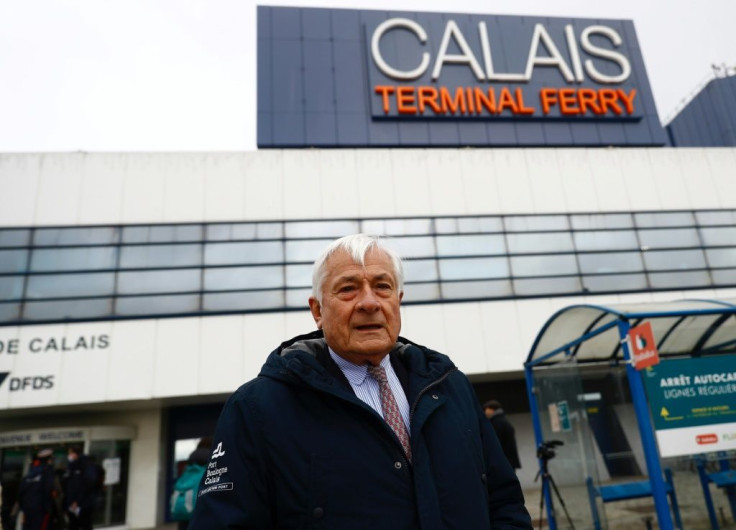
Calais port president Jean-Marc Puissesseau expressed regret over the sentimental changes of Britain leaving the customs union but added in English: "That is life! The show must go on!"
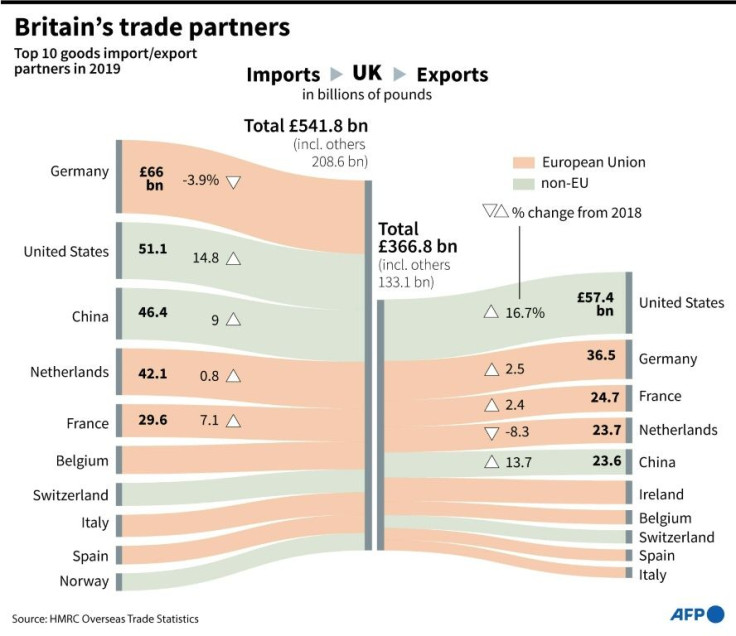
French officials have insisted that disruption at the frontier in Calais in northern France is being minimised by a so-called "smart border". Hauliers are required to enter information about their freight online in advance with only a rapid scan needed at the border.
Once this is done the trucks can either be waved through with a green light or subjected to extra checks if given an orange one.
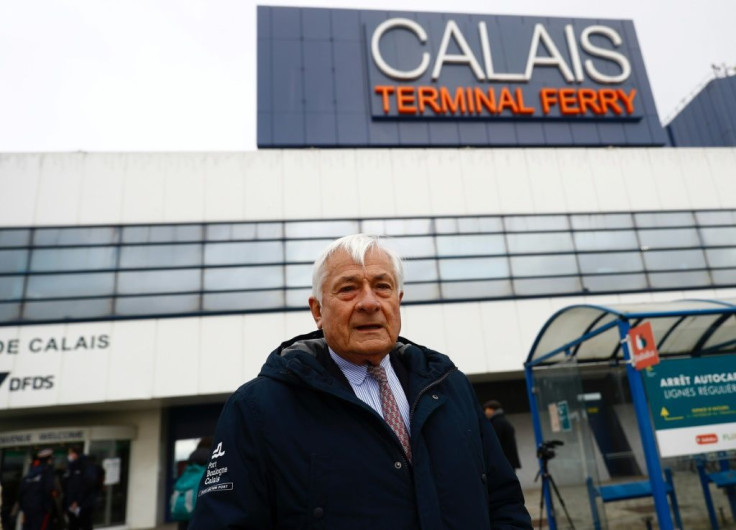
Officials also say that British businesses have also stockpiled for January, which is also a relatively quiet month with little activity after Christmas.
The first vehicle to pass through heading for Britain was a heavy goods vehicle from Romania carrying post and parcels, which was symbolically given the go-ahead by Calais mayor Natacha Bouchart.
"I am very happy, it is a privilege for me," said its driver Toma Moise, 62.
Bouchart, who pressed the button allowing the lorry to leave, said it was a "historic moment" adding that going back to customs checks after the UK's near half century of EU membership "will have consequences whose range we don't yet know".
There had been immense bottlenecks of traffic after France briefly closed the border in late December when a new coronavirus variant was found in Britain.
But with all drivers coming in now taking tests before entering France, the backlog was cleared just in time for the completion of Brexit.
The first to submit to a check on entering France was a lorry driven by Ukrainian Viktor who smiled and noted that "colleagues from England said 'congratulations' to me, because I'm the first driver".
Of the 36 trucks disembarking from the Pride of Kent, which left from Dover, three were told to stop for additional checks, the AFP correspondent said.
In Dover, the driver of a red van with Polish number plates was one of very few turned away for not having a Covid-19 test result, and was redirected to sites north of the port where rapid testing is being conducted.
"It's good to see the port's done its job and there's no backlog," Alan Leigh, 52, told AFP while taking an early New Year's Day stroll on the famous white cliffs above the Dover docks as the ship left on the outbound trip.
However, those involved in cross-Channel trade still fear potential trouble in the coming weeks and months, as customs checks and more paperwork for European travel and trade are needed for the first time in decades.
© Copyright AFP 2024. All rights reserved.





















